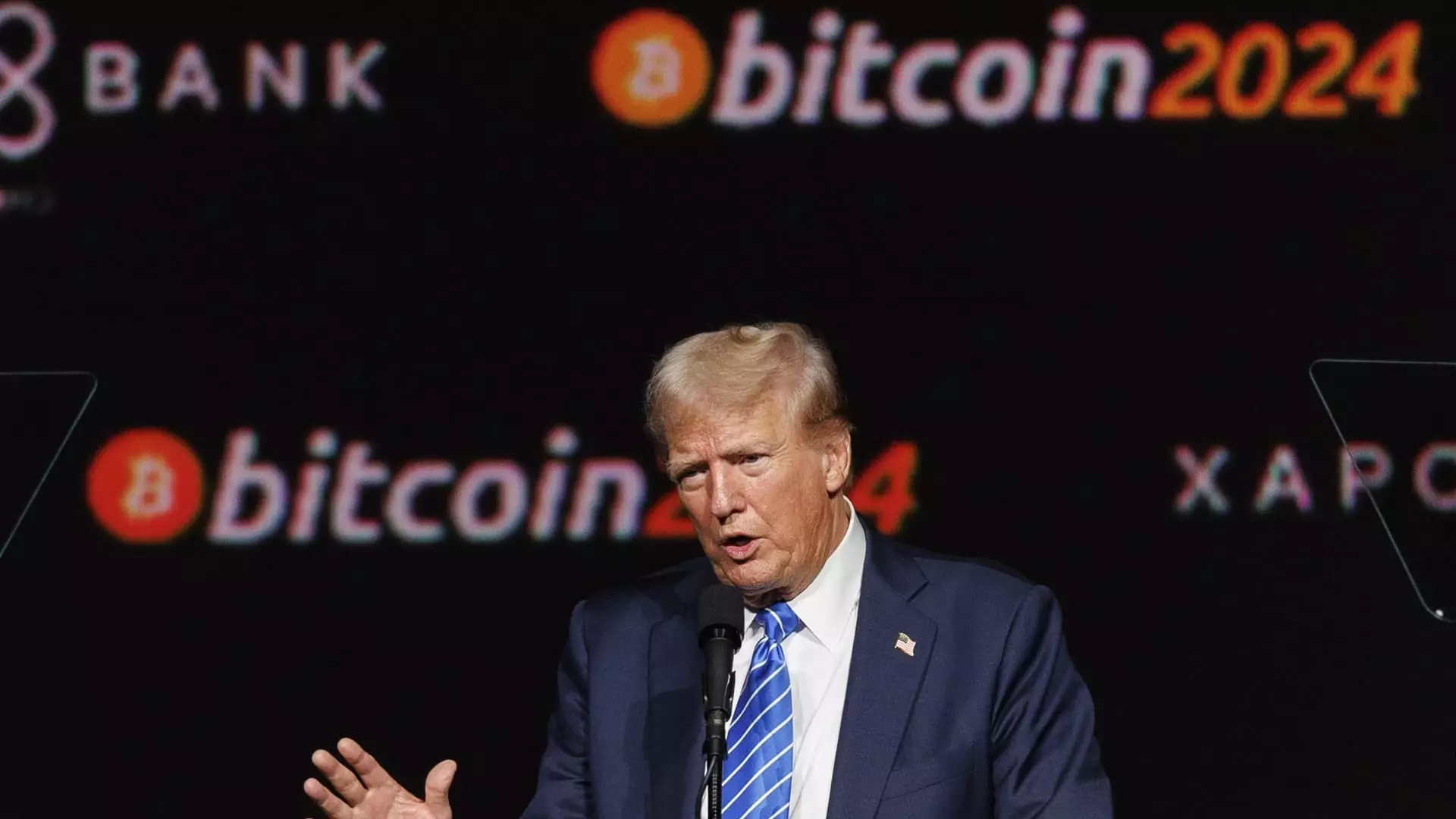The cryptocurrency market has always been a complex tapestry woven from innovation, global economics, and regulatory landscapes. As the U.S. presidential election approaches, speculation about how the outcome may influence cryptocurrencies has intensified. However, voices from within the crypto community, including industry leaders present at significant events like TOKEN2049 in Singapore, have largely downplayed the election’s immediate impact on global markets. This raises questions about the degree to which political changes truly affect the decentralized world of cryptocurrencies.
Charles Hoskinson, a co-founder of the Ethereum blockchain, emphasized that regardless of the U.S. political landscape’s crypto-friendliness, the world is moving toward decentralization. Hoskinson remarked on the growing regulatory frameworks emerging globally, notably in regions like Asia and Europe. This sentiment indicates a salient point often overlooked: the decentralized nature of cryptocurrencies means they thrive independently from political shifts in any single country, no matter how influential it may be.
Furthermore, Anthony Scaramucci, founder of SkyBridge Capital, acknowledged that while former President Donald Trump may appear to be more favorable towards cryptocurrency, the regulatory approaches of potential future leaders like Vice President Kamala Harris may not drastically differ from Trump’s. Scaramucci’s optimistic outlook on the future regulation of cryptocurrencies reflects a broader trend towards bipartisan support for innovative technologies that promise economic growth and competitive advantage.
This perspective is echoed by Jeremy Allaire, CEO of Circle, who contends that cryptocurrency regulation is unlikely to become a contentious political issue in the current election cycle. His assertion highlights a critical shift in the conversation around cryptocurrencies: they are increasingly viewed as infrastructural elements essential for economic competitiveness rather than fringe technologies subject to manipulation by any one political group. The argument posits that both major U.S. political parties recognize the potential of cryptocurrencies to yield benefits, making it unrealistic to anticipate drastic regulatory changes purely based on electoral outcomes.
Outside the confines of U.S. politics, however, it becomes evident that many industry insiders feel the pulse of the market is already in motion. Arthur Hayes, ex-CEO of BitMEX, articulated a strong stance that U.S. political dynamics should have minimal bearing on global crypto markets. His remarks invoke an essential narrative in the crypto space: historical trends indicate that Bitcoin and other digital currencies have matured in environments bereft of cohesive regulatory guidance. Instead, they have thrived amid uncertainty, suggesting an innate resilience that transcends traditional political paradigms.
Interestingly, as candidates prepare for the election, funding flows from the cryptocurrency sector have surged. With over $190 million funneled to various political action committees and candidates, there is evidence that crypto stakeholders are actively participating in the traditional political process. Data compiled by James Delmore and verified by sources illuminates a more balanced approach to political contributions compared to previous cycles. However, the ostensible favoritism towards Republican candidates underscores the prevailing belief that political alignment with pro-crypto stances still holds considerable sway.
While these contributions suggest a desire for political engagement, they also spotlight an inherent irony. The crypto community’s unwavering belief in decentralization could be called into question when financial backing for political entities becomes part of the narrative. Does this signify an effort to influence policy to safeguard their interests, or is it simply a way to ensure that cryptocurrency remains relevant in political discourse?
Conclusion: The Path Forward in a Decentralized World
As we navigate through this politically charged atmosphere leading up to the U.S. elections, it is critical to recognize that the cryptocurrency landscape is shaped by broader, more powerful forces than any single electoral outcome. The sentiment among industry leaders suggests a belief in the inevitability of a decentralized future, unfazed by the caprice of political tides. The enduring principle of cryptocurrencies is rooted in their ability to function independently of governmental control, and as the world moves towards renewed frameworks for regulation, it becomes evident that the future of digital currencies will continue to evolve irrespective of any one nation’s political decisions. The focus should remain on fostering innovation and ensuring that the decentralized financial systems take hold globally, irrespective of local political shifts.


Leave a Reply